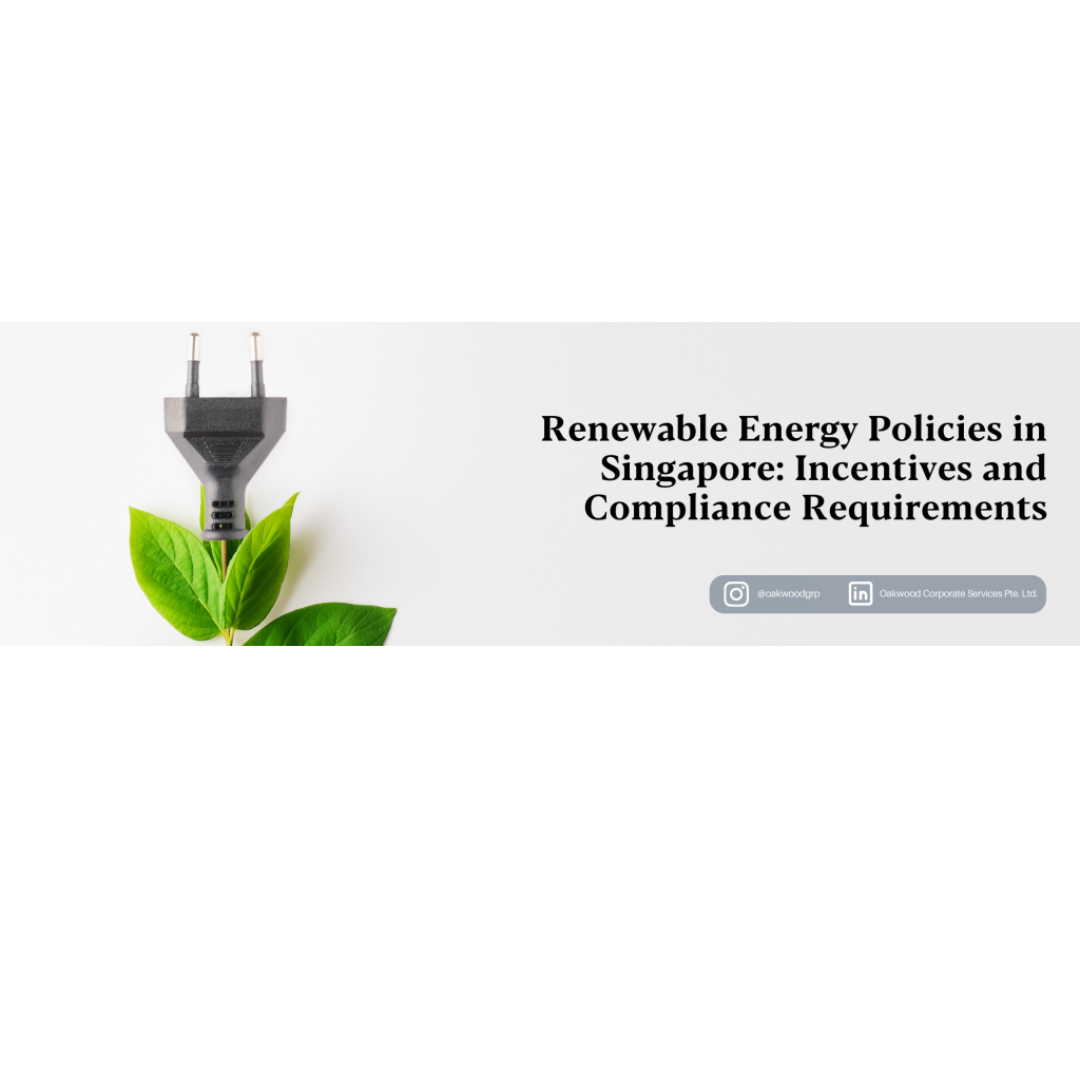
Renewable Energy Policies in Singapore: Incentives and Compliance Requirements
The heightened global concern surrounding climate change has spurred increased attention toward renewable energy, and Singapore is actively participating in this paradigm shift. The city-state is dedicating concerted efforts to transition its energy sources towards sustainability. Through targeted policies and incentives, Singapore is navigating a transformative journey to promote the adoption and compliance of renewable energy.

Green Energy Initiatives
In recent years, Singapore has prioritised renewable energy, recognising its pivotal role in mitigating climate change and enhancing energy security. The city’s approach revolves around a comprehensive framework comprising policies, incentives, and compliance laws aimed at fostering a conducive environment for renewable energy projects.
One of the key policies driving Singapore’s renewable energy agenda is the Sustainable Singapore Blueprint. Envisioned as a roadmap towards a sustainable future, this initiative outlines ambitious targets, including the goal to quadruple solar energy deployment by 2025. To achieve this, the government has introduced various incentives enticing both businesses and individuals to invest in solar panels and other renewable technologies.
Central to Singapore’s incentive structure is the SolarNova program, which is designed to accelerate the deployment of solar photovoltaic systems. Through SolarNova, the government collaborates with relevant agencies to tender solar projects on public sector sites, therefore driving economies of scale and reducing solar installation costs. Additionally, the Enhanced Solar Deployment Scheme offers attractive incentives to offset upfront costs for commercial and industrial entities adopting solar energy.
Laws for Green Energy
To ensure compliance and bolster renewable energy uptake, Singapore has implemented regulatory measures. The Energy Conservation Act mandates energy management practices for large energy users, encouraging the adoption of renewable sources and energy-efficient technologies. Furthermore, the carbon tax, introduced in 2019, incentivises companies to reduce emissions by imposing a levy on greenhouse gas emissions, prompting businesses to explore cleaner alternatives such as renewables.
In parallel, Singapore is fostering innovation and research in renewable energy through initiatives like the Energy Market Authority’s (EMA) R&D fund. This fund supports research efforts to enhance grid integration, energy storage solutions, and renewable energy technologies, nurturing a vibrant ecosystem for sustainable energy advancements.
Despite these progressive measures, there are still several challenges that exist. Land scarcity poses a constraint on large-scale renewable energy deployment. This prompts Singapore to explore innovative solutions such as floating solar panels on reservoirs and offshore wind projects.
Towards Foreseeable Future
As a global momentum for renewables surges, Singapore stands poised to embrace the transition. Continuous refinement of policies and incentives is imperative to overcome barriers and expedite the adoption of renewable energies. Encouragingly, Singapore’s unwavering commitment to sustainability, coupled with proactive measures, signifies a promising trajectory toward a greener and more resilient future.
An understanding of Singapore’s renewable energy policies, incentives, and compliance laws is crucial for stakeholders, as it illuminates their pivotal role in guiding the nation toward a sustainable and low-carbon future.

